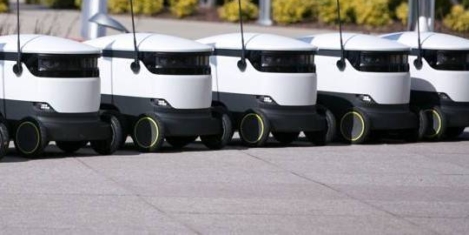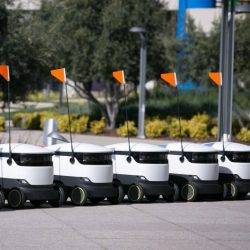May 10, 2018
New framework aims to ensure facilities managers have the expertise to keep up with demand for services
 The Royal Institute of Chartered Surveyors (RICS) and the International Facility Management Association (IFMA) have created a new framework which sets out to provide strategic best practice advice and outline how facilities managers can make the most of their expertise to keep-up with the growing demand for FM services. The Strategic Facility Management (FM) Framework authored by Dave Wilson, FRICS, IFMA Fellow for the IFMA-RICS collaboration – sets out a more ‘holistic approach’ to planning the provision of FM, with best practice advice on how to achieve maximum value from a workplace, including gaining environmental benefits, improving productivity, whilst also protecting employees and consumers. The framework also sets out some of the key aspects of how and where facility managers can play a bigger, more valuable role in the corporate real estate decision-making process, including property acquisition and disposal.
The Royal Institute of Chartered Surveyors (RICS) and the International Facility Management Association (IFMA) have created a new framework which sets out to provide strategic best practice advice and outline how facilities managers can make the most of their expertise to keep-up with the growing demand for FM services. The Strategic Facility Management (FM) Framework authored by Dave Wilson, FRICS, IFMA Fellow for the IFMA-RICS collaboration – sets out a more ‘holistic approach’ to planning the provision of FM, with best practice advice on how to achieve maximum value from a workplace, including gaining environmental benefits, improving productivity, whilst also protecting employees and consumers. The framework also sets out some of the key aspects of how and where facility managers can play a bigger, more valuable role in the corporate real estate decision-making process, including property acquisition and disposal.






 Companies will need more, not less people, in the near-term to meet the demand stimulated by automation, claims a new report from ManpowerGroup. The report – Robots Need Not Apply: Human Solutions in the Skills, found that 91 percent of employers in the US will maintain or increase headcount in the next two to three years as industries shift to more advanced, automated processes. The report provides a real-time view of the impact of automation on headcount, the functions most affected and the soft skills that are both of greatest value and hardest to find. Frontline and Customer-Facing functions anticipate the most growth as organisations place higher value on customer service and human interaction. Manufacturing and Production functions are close behind. Back-office functions that are routine or add less value to customer interactions are under greatest threat as organisations implement new technology to drive efficiency. In this Skills Revolution the best blend of high-tech and high-touch will be the combination of human strengths with technical and digital know-how: 61 percent of companies say communication skills, written and verbal, are their most valued soft skill followed by customer service, collaboration and problem-solving.
Companies will need more, not less people, in the near-term to meet the demand stimulated by automation, claims a new report from ManpowerGroup. The report – Robots Need Not Apply: Human Solutions in the Skills, found that 91 percent of employers in the US will maintain or increase headcount in the next two to three years as industries shift to more advanced, automated processes. The report provides a real-time view of the impact of automation on headcount, the functions most affected and the soft skills that are both of greatest value and hardest to find. Frontline and Customer-Facing functions anticipate the most growth as organisations place higher value on customer service and human interaction. Manufacturing and Production functions are close behind. Back-office functions that are routine or add less value to customer interactions are under greatest threat as organisations implement new technology to drive efficiency. In this Skills Revolution the best blend of high-tech and high-touch will be the combination of human strengths with technical and digital know-how: 61 percent of companies say communication skills, written and verbal, are their most valued soft skill followed by customer service, collaboration and problem-solving.













 There have already been warnings from workplace experts that the legal profession isn’t one to choose for those starting out on their careers as it’s ripe for automation, and a new survey claims these changes are happening fast. According to a survey of over a 100 law firms by CBRE, nearly half (48 percent) are already utilising Artificial Intelligence (AI) and a further 41 percent have imminent plans to do so. Of the firms already employing AI, 63 percent of firms are using it for legal document generation and review, and the same proportion for e-discovery. Due diligence (47 percent) and research (42 percent) were also common applications, along with compliance and administrative legal support (each 32 percent). The use of AI will affect employment levels, with the greatest impact predicted at the junior and support levels, where nearly half (45 percent) of firms believing that there will be a reduction in headcount. In contrast, only 7 percent of firms believe that senior headcount levels will be reduced.
There have already been warnings from workplace experts that the legal profession isn’t one to choose for those starting out on their careers as it’s ripe for automation, and a new survey claims these changes are happening fast. According to a survey of over a 100 law firms by CBRE, nearly half (48 percent) are already utilising Artificial Intelligence (AI) and a further 41 percent have imminent plans to do so. Of the firms already employing AI, 63 percent of firms are using it for legal document generation and review, and the same proportion for e-discovery. Due diligence (47 percent) and research (42 percent) were also common applications, along with compliance and administrative legal support (each 32 percent). The use of AI will affect employment levels, with the greatest impact predicted at the junior and support levels, where nearly half (45 percent) of firms believing that there will be a reduction in headcount. In contrast, only 7 percent of firms believe that senior headcount levels will be reduced.











May 1, 2018
No surprises in new report on future workplace trends
by Mark Eltringham • Comment, Flexible working, Technology, Wellbeing, Workplace design
More →